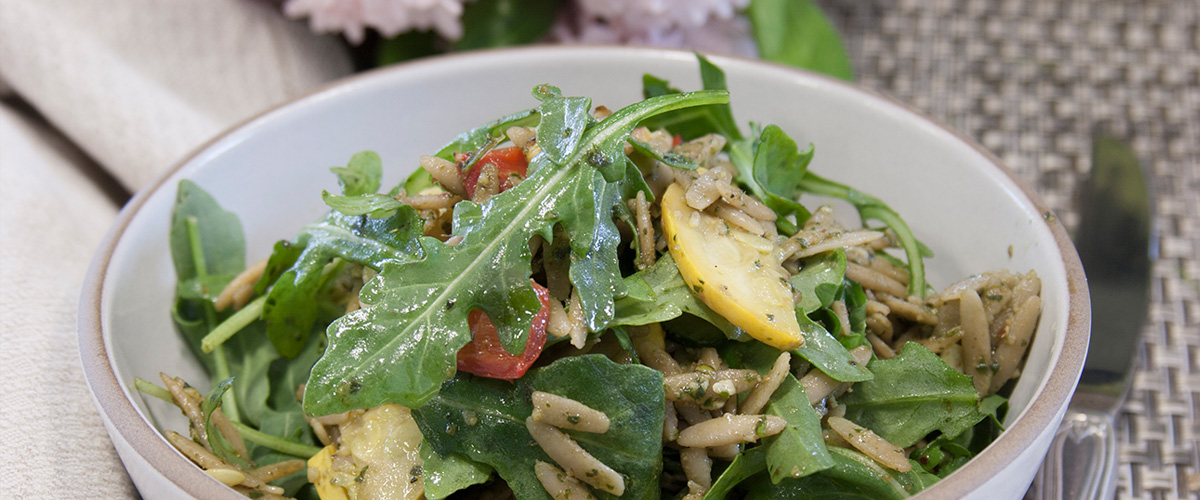18
2015
MICHIO KUSHI CHAMPIONED NATURAL FOODS

Nine years ago, early in her career, Asia Mei cooked for a Boston-area family whose matriarch was given a prognosis of three months to live following a cancer diagnosis. Mei turned to the Kushi Institute in Brookline for research. “Combining a macrobiotic approach to [the woman’s] diet with her treatment allowed for a truly invaluable year,” well beyond the three months she expected, Mei recalls.
Michio Kushi, founder of the institute, who made the macrobiotic and natural foods diet popular in the United States, died in Boston on Dec. 28, according the Kushi Institute headquarters in Becket. The Japanese native was 88. The cause of death was reported to be pancreatic cancer. Kushi, in a 2008 documentary, said that, “Unless people become healthy, and peaceful-minded from the heart, naturally, there is no peace in the world.” He believed healthy eating contributed to world peace and helped combat debilitating diseases. He and his first wife, Aveline, were also founders of Erewhon, a brand of natural foods. (Aveline died in 2001 and Kushi is survived by his second wife, Midori.)
Macrobiotics suggests eliminating meat, animal fats, dairy, refined sugars, honey, stimulating foods such as spices and alcohol, and more. The diet suggests consuming whole grains, vegetables, beans, and sea vegetables, and occasionally white fish, locally grown fruits, and lightly roasted nuts and seeds.
At the time she discovered the macrobiotic diet, Mei, who is now a chef, was new to ultra-natural cooking. “Seeing the effects of living so consciously when it comes to sourcing your food — and how directly beneficial that can be for our health — was something I have never considered to such an extent,” Mei writes via e-mail. She says the Kushi approach to local vegetables and grain-based foods have become a permanent influence on her cooking, and will be reflected on the menu at Moonshine 152, her soon-to-open South Boston restaurant.
“I was so sad to hear of his passing,” says Heidi Feinstein, founder and CEO of Life Alive Urban Oasis & Organic Cafes, in Cambridge, Salem, and Lowell. Feinstein says Kushi’s granddaughter frequents her Lowell cafe. “What I loved was that he translated the immense wisdom of Chinese medicine and made it easy and accessible for the Western world. He spent his life awakening people to eating a simple way. I never studied under him but he really influenced my menu.“
Even chefs who don’t offer vegetarian and vegan dishes felt the effects of Kushi’s influence. “He was a game changer in the way we all eat today,” William Kovel, the chef and owner of Catalyst in Cambridge, writes in an e-mail. “From the current diets of celebrities to just common knowledge about plant-based foods, he was one of the foundation blocks of the health food movement.”
Michael Leviton, chef and owner of Lumiere in West Newton, marvels at how progressive Kushi’s philosophy was when he began advocating macrobiotic eating in the 1960s. “The interesting thing is how far ahead of the curve he was in some ways,” says the chef who also helms Area Four in Cambridge and A4 Pizza in Somerville. “Not that I would in any way espouse a full macrobiotic diet, but I do think there are certainly large grains of truth in it. I take some of the elements to heart.”
Leviton worries, though, that Kushi’s tenets have been embraced too late. “We are a nation fully one-third obese and overweight. We live in a fully entrenched system of unsustainable practices, only one of which is health. You can see health care costs have gone through the roof. It is entirely diet related.”
Mei shares those sentiments. “While it can be very easy to get caught up in the thrilling worlds of charcuterie and molecular gastronomy, I think it’s best to remember that there is a certain elegance in simplicity,” she says.
“Michio Kushi really taught us that sustainability isn’t something that just applies to the effects we have on the world around us,” says Mei, “but that the choices we make and what we put into our bodies are exactly where those profound effects start.”
